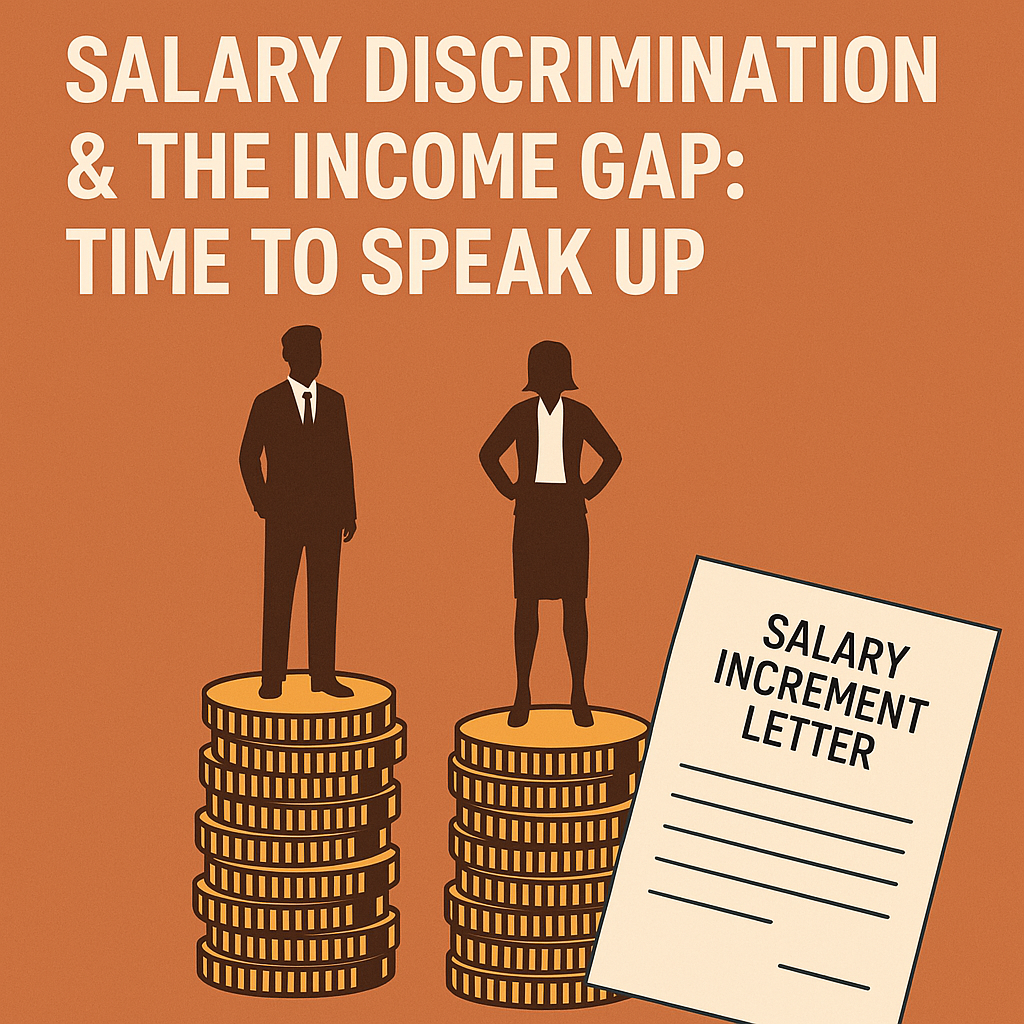In today’s fast-paced economy, the difference in earnings between the highest-paid and lowest-paid individuals has become more glaring than ever. The divide between the rich and poor continues to grow at a concerning rate—and salary discrimination is one of the key factors fueling this imbalance.
While many factors contribute to income inequality, unequal pay for equal work stands out as a persistent and systemic issue.
Whether it’s based on gender, race, job role, or negotiation power, salary discrimination directly impacts the financial stability of millions and plays a critical role in widening the wealth gap.
Let’s dive into how this happens—and why it’s more important than ever to advocate for fair pay, even if it starts with something as small but powerful as a salary increment letter.
Understanding Salary Discrimination
Salary discrimination occurs when employees performing the same or similar roles receive different levels of pay based on non-performance-related factors such as gender, ethnicity, age, or even educational background.
This type of inequality often goes unnoticed due to a lack of transparency in salaries and internal company practices.
For instance, women in the U.S. still earn approximately 82 cents for every dollar earned by men, according to the U.S.
Census Bureau. The gap is even wider for women of color.
Similar disparities exist between racial and ethnic groups, with minorities often being paid less than their white counterparts for similar roles and responsibilities.
But salary discrimination isn’t always about identity. It can also come down to power dynamics—those who are better at negotiating, have influential networks, or hold degrees from elite institutions often receive better compensation, even if their job performance is the same as others.
How It Contributes to the Rich-Poor Divide
The consequences of salary discrimination extend far beyond the workplace. Here’s how it plays into the broader problem of income inequality:
- Reduced Lifetime Earnings: Even a small wage gap compounds over time. Over a 30-year career, a yearly $5,000 difference adds up to $150,000—not including lost interest, investment potential, or retirement savings.
- Limited Upward Mobility: Lower pay often means fewer resources for education, career development, or savings. This traps individuals and families in a cycle of poverty or near-poverty, making it hard to break through to higher income levels.
- Wealth Accumulation for the Rich: On the other side of the spectrum, those earning higher salaries often have access to stock options, better benefits, and investment opportunities, further boosting their wealth while others struggle to cover basic living expenses.
- Unequal Access to Opportunities: The disparity in income creates unequal access to healthcare, quality education, safe housing, and more—leading to a system where the rich get richer and the poor stay stuck.
Breaking the Silence: Why You Should Advocate for Yourself
In many workplaces, especially where salary transparency is lacking, employees are unaware that they are being underpaid. Others might know but feel uncomfortable speaking up due to fear of conflict, job loss, or being seen as “difficult.”
However, the first step to challenging salary discrimination is to recognize your worth and formally address the issue. This is where a salary increment letter becomes a powerful tool.
The Role of a Salary Increment Letter
A salary increment letter is more than just a request for more money—it’s a formal acknowledgment of your contributions, your value to the organization, and your awareness of what fair compensation looks like. It can also highlight any inequalities you’ve noticed and provide factual backing to support your case.
Here’s how it helps:
- Initiates a Conversation: Many managers and HR professionals aren’t even aware of pay gaps until someone brings it up. A letter starts the conversation in a professional and documented way.
- Shows Professionalism: Unlike a verbal complaint, a written letter shows initiative, research, and respectful communication.
- Pushes for Fairness: If more employees speak up, organizations are forced to evaluate their compensation structures and address discrepancies. This collective pressure can lead to systemic change.
What to Include in a Salary Increment Letter
- Your Achievements: Highlight key accomplishments, goals met, or additional responsibilities taken on.
- Market Comparison: Include data on what others in your role are earning in your industry or region.
- Company Contribution: Link your performance to the company’s growth, profits, or customer success.
- Polite Request for Review: Ask for a salary review, not just a raise—this keeps the door open for negotiation and fairness.
Addressing the Bigger Picture
Of course, one salary increment letter won’t solve the global problem of income inequality—but it contributes to a culture where employees demand fairness, companies are held accountable, and compensation is seen as a reflection of value, not bias.
Organizations, too, must do their part by:
- Conducting internal audits to identify pay disparities.
- Promoting salary transparency.
- Establishing clear and unbiased pay structures.
- Offering equal opportunities for advancement and negotiation training.
Only through a combined effort from individuals and employers can we begin to close the income gap and create a more equitable future.
Final Thoughts
Salary discrimination is a silent but powerful driver of inequality. It builds barriers to wealth, opportunity, and social mobility. However, change begins with awareness—and action.
Writing a salary increment letter is a simple yet impactful step you can take to advocate for yourself and others who may be facing the same issue. When more people speak up, norms shift, and fairness becomes not just a hope—but a standard.


